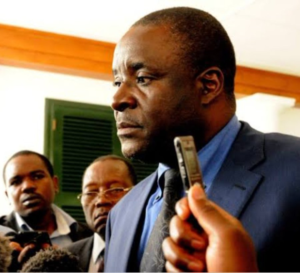FROM THE PRESIDENT’S DESK: MNANGAGWA TAKES THE REINS OF POWER WITH 13 KEY LAWS

In an assertive manoeuvre towards fortifying his command over Zimbabwe, President Emmerson Mnangagwa has recently entrenched 13 significant laws under his direct control. This decisive step delineates a broad expansion of his executive authority, reflecting a meticulous power consolidation strategy. Among the critical spheres now under the President’s aegis are the Anti-Corruption Commission, the Sovereign Wealth Fund, electronic surveillance, and notably, the autonomy to determine his own Presidential Salary and Pension.
The move to place these laws under personal control is seen as part of Mnangagwa’s larger endeavour to fortify his presidency. By holding the reins of the Anti-Corruption Commission, the President aims to exemplify a stern stance against corruption, albeit under his own terms. This move also places a significant amount of scrutiny power directly into the hands of the highest office, thus embodying a double-edged sword where the line between just oversight and authoritarian control could easily blur.
Moreover, the President’s authority over the Sovereign Wealth Fund signifies a profound influence over the nation’s financial reservoirs. This fund, designed to stabilize the economy by managing the country’s reserves, now rests under the unequivocal discretion of Mnangagwa. This not only portrays a substantial consolidation of fiscal authority but also raises questions regarding the checks and balances necessary for maintaining a democratic dispensation.
Furthermore, the inclusion of electronic surveillance under the presidential purview is a testament to the burgeoning emphasis on security in the digital age. While this move is touted as a measure to bolster national security, critics argue that it could be a segue into an era of increased surveillance and diminished privacy for the citizens of Zimbabwe. The balance between security and privacy remains a global debate, and Zimbabwe now finds itself at this crucial juncture.
Notably, the authority to set his own Presidential Salary and Pension is a rare power that underscores the extent of Mnangagwa’s consolidation. While leaders often have substantial remunerations, the autonomy to determine one’s own financial recompense delineates a significant departure from the norm. This aspect of the law centralisation could foster discussions on the transparency and accountability of the executive office.
The ramifications of these legislative changes are multi-faceted and could potentially reshape the political and socio-economic landscape of Zimbabwe. Supporters of President Mnangagwa may view this as a necessary step towards a strong, centralized leadership capable of navigating the nation through turbulent waters. Conversely, critics might see this as an alarming ascent towards autocracy, with a significant amount of power now concentrated within the presidential office.
In conclusion, President Mnangagwa’s move to centralise 13 crucial laws signifies a major stride in his power consolidation agenda. As Zimbabwe treads on the path of this new political paradigm, the discourse surrounding the balance of power, democratic ideals, and the future trajectory of the nation is likely to intensify. The onus now rests on the governance structures to ensure that this consolidation does not veer off the delicate path of democracy and accountability, but instead, fosters a conducive environment for national development and prosperity.





